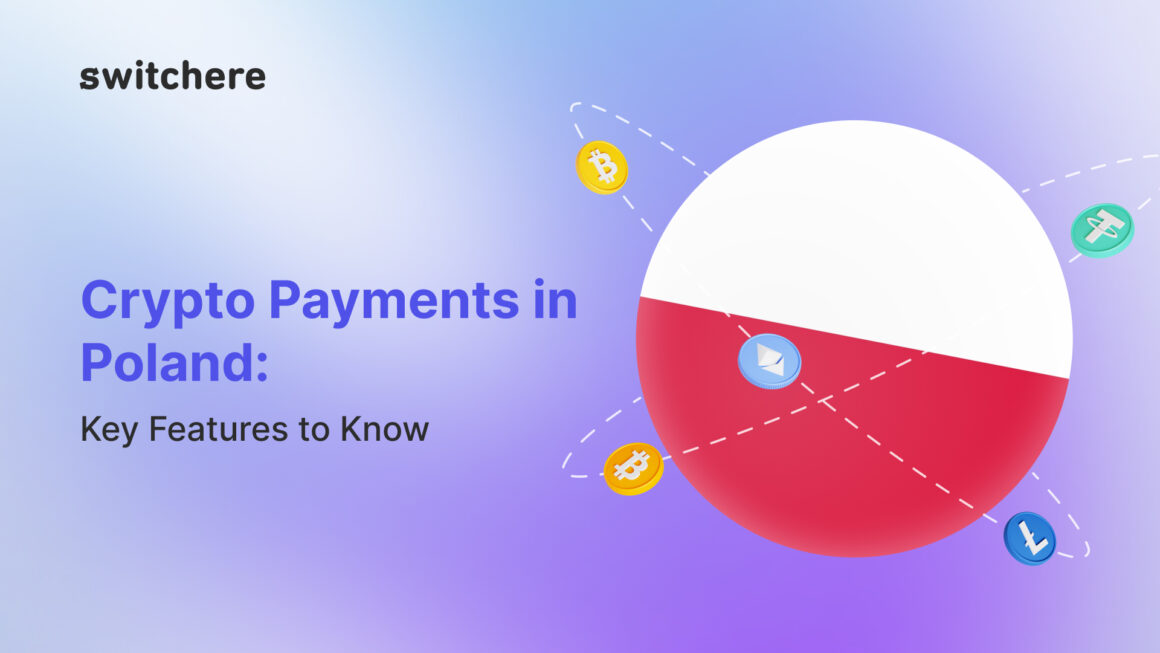In the dynamic world of finance, businesses are increasingly exploring innovative payment solutions, with virtual currencies emerging as a viable medium of exchange. Poland, with its evolving regulatory framework, offers endless opportunities for businesses to legally accept cryptocurrency payments. Like many other nations, Poland has been grappling with the need to regulate this burgeoning industry while ensuring innovation and customer-sensitive data protection.
This article delves into the virtual currency regulation framework in Poland, examining the current status of virtual assets and crypto payments. Additionally, it explores the licensing and registration prerequisites for businesses and cryptocurrency exchanges operating in the country.
Crypto Regulation Framework in Poland
Poland has not adopted a hostile stance towards cryptocurrencies but rather seeks to construct a clear legal framework to govern their use. The central regulatory authority fostering virtual currency-related activities in Poland is the National Financial Supervision Authority (FSA).
The authorized institution has outlined guidelines for the use of virtual currencies and wallet providers. These guidelines cover issues such as CTF and AML/KYC regulatory compliance, which are mainly aimed at preventing illicit activities within the digital fintech ecosystem.
Current Status of Cryptocurrencies and Virtual Currency Payments
Cryptocurrencies have gained traction inside the country, with increasing acceptance in both online and physical stores. Many businesses now accept popular cryptocurrencies like Bitcoin, Tether, Tron, Ripple, Ethereum, etc., as payments for goods and services. Additionally, the EU country has witnessed growth in the number of virtual currency ATMs, making it smoother for users to purchase and sell coins and tokens.
Whatever the case, virtual currency payments are gaining legitimacy in the country, with large and small businesses recognizing the privileges of fast and robust TXs. However, concerns regarding the volatility of virtual currencies and possible risks that go with price fluctuations persist, hindering widespread adoption for everyday transactions.
Licensing and Registration Requirements
To render virtual currency-related operations legally in the country, businesses are subject to the following undisputed requirements:
AML and CTF Regulatory Norms
Entities must implement robust AML/KYC as well as CTF procedures to prevent illicit activities.
Mandatory Registration with Polish FSA
Cryptocurrency exchanges and other virtual currency-related businesses must register with the Polish FSA to operate legally. It involves furnishing relevant data about the business model, security protocols, and ownership rights.
User Protection
Businesses dealing with cryptocurrencies are obligated to implement proper methodologies to protect consumers and guarantee the first-class safety of their funds and personal data.
Financial Audits
Regular audits are mandated to guarantee transparency and monetary stability within the virtual currency segment.
Tax Compliance
Cryptocurrency TXs are subject to taxation in Poland. Businesses must accurately report and fulfill their tax obligations related to cryptocurrency payments.
Crypto Payment Gateways in Poland
In order to start accepting virtual currency payments for goods and services in Poland, businesses are free to choose the most suitable crypto payment gateway that meets their current needs. Below, you may find a list of crypto exchange service providers rendering their services following the B2B model.

Bybit
To start with, Bybit was formed in 2018 and is currently headquartered in UAE. It renders multiple trading services (leverage, futures, and derivative trading), staking, online crypto, and NFT purchases, etc. Despite the wide choice of services offered by the Bybit company, its key disadvantages encompass the prohibition of fiat deposits and withdrawals, a too complex spot trading UI for beginners, US customers are not served, etc.
Bitget
Moving further, Bitget was founded the same year as Bybit, but it is headquartered in Singapore. The fintech firm combines a great mixture of crypto trading and Web3 services, spot and copy trading, staking, lending, coin Launchpad, etc. Although it is more feature-rich by contrast with the above-mentioned competitor, the same issue remains unresolved, namely the prohibition of fiat deposits and withdrawals, and it is mainly designed for seasoned traders and investors alike.
Switchere
And the last but definitely not the least crypto exchange under review is Switchere. It is an EU-based fintech company founded in 2019. By default, the company initially specialized in rendering instant crypto purchases; however, with the passage of time, it has managed to follow two business models — B2C and B2B.
Concerning the latter, Switchere offers smart and easy B2B business partnerships for companies operating in 170+ countries. Switchere allows businesses to seamlessly accept crypto payments, enable fiat on-ramping, and integrate a plug-and-play NFT Checkout powered by Switchere.
Conclusion
To sum it up, Poland’s approach to virtual currency regulation reflects a nuanced comprehension of the challenges and opportunities presented by the digital asset landscape. By establishing a clear framework through the Polish FSA, the EU country aims to strike a balance between innovative solutions and protecting clients.

Leave a Reply